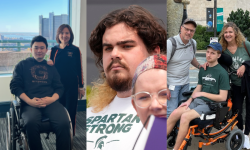Michigan private schools got fed COVID cash, how it was spent isn’t clear
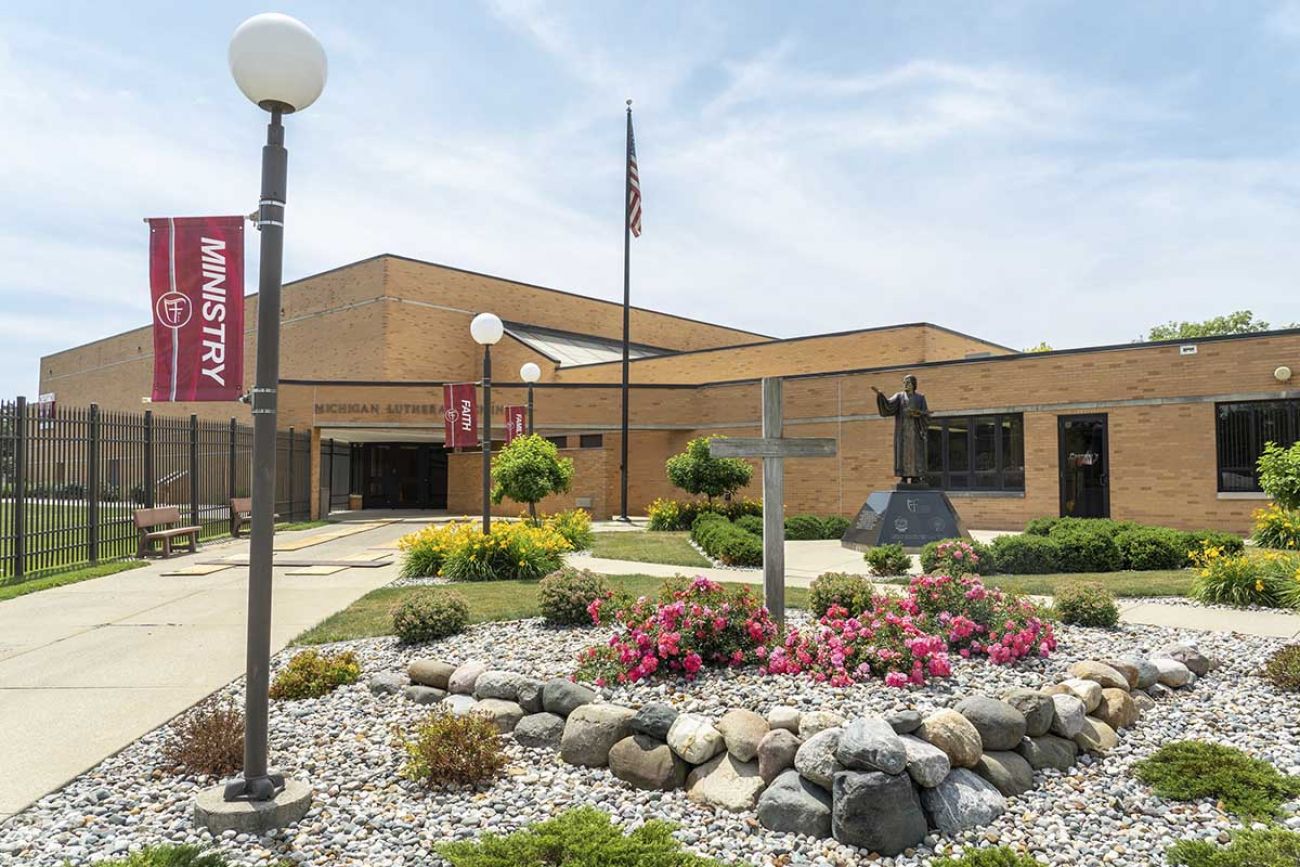
The same mental health crisis plaguing Michigan’s public schools is also plaguing its private schools.
Many teenagers attending Michigan Lutheran Seminary, a private high school in Saginaw, have struggled with anxiety and depression because their normal school routines were disrupted for months at a time, just like their peers in public schools. Some acted out when they returned to the private school’s campus, said David Koehler, dean of students.
After a schoolwide screening, officials found that roughly 25% to 30% of students needed extra mental health help. Administrators turned to the school’s counselor to work more hours.
That extra help cost money.
The private school used COVID-19 relief funds to help pay for those extra hours, just like many public schools did.
In fact, private schools across the state benefitted from federal COVID relief funding, while they also had access to taxpayer money that public school districts did not: Paycheck Protection Program (PPP) loans. Many private schools received both COVID relief funding and PPP loans, according to an analysis by the Detroit Free Press in collaboration with Chalkbeat Detroit and Bridge Michigan.
Like Michigan Lutheran Seminary, private schools appeared to have leaned on public funding to pay for mental health resources, technology and supplies to keep the virus at bay, like massive jugs of hand sanitizer and disinfectant wipes.
Whether private schools should receive school COVID relief funds — or any public money — has been a long-running debate nationally and in Michigan. Federal lawmakers sent a windfall of $6 billion to Michigan to help schools recover from the numerous crises brought on and exacerbated by the pandemic. Largely, federal relief money has gone to public schools.
But through smaller and lesser-known programs, more than $92 million has made its way to private schools, largely religious and nonprofit schools, with more than $80 million more to come. The federal relief funds were limited to nonprofit schools.
Critics say programs that share taxpayer dollars with private schools disregard that private institutions receive tuition dollars every year, are subject to few government regulations, and can turn away students with disabilities or students from low-income homes.
“Private schools don't need to receive public dollars,” said Arlyssa Heard, a parent organizer with 482Forward, a grassroots Detroit organization dedicated to education access. “They have parents who are either able to afford it or who can work something out.”
But advocates for private schools said they experienced the same crises public schools are facing, and the pandemic similarly created an urgent need for funding to address pandemic-related learning loss and mental health concerns.
"No matter if it's a private or a public education, kids need support," said Mark Luetzow, president of Michigan Lutheran Seminary. "It was good in a lot of ways."
How much did schools get?
Michigan private schools received $10,655,401 in what’s called equitable services through the CARES Act and other subsequent federal relief measures, according to the MDE.
The schools have to request that funding through their local school district. Private schools do not receive the funding directly. Instead, a public district buys the requested services or items, then hands them off to the private schools.
In addition, the Michigan Department of Education has also awarded $82 million in federal Emergency Assistance to Non-Public Schools (EANS) funding so far, but the funding period has not closed. Federal lawmakers approved two rounds of the funding during the pandemic. The department is gearing up to give out an additional $80 million to private schools through EANS II once the first round of EANS is distributed.
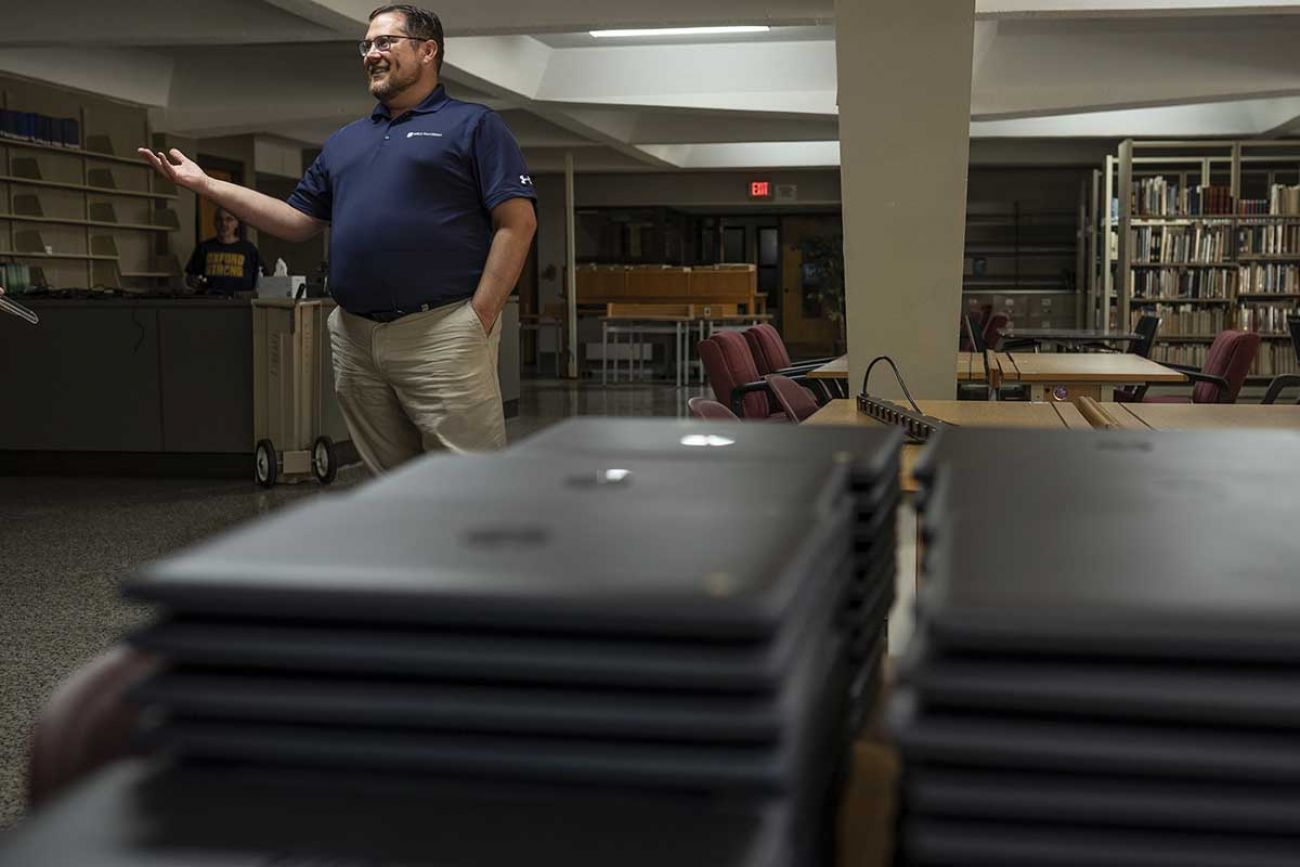
Tall stacks of new Chromebooks sit in the school’s library. Much of the funding went to upgrading technology, which was desperately needed, Luetzow said. In total, $56,662 went to buy 181 Chromebooks.
About $18,000 went to expanded counseling services at the school.
Koehler said he's seen an increase in students experiencing depression and exhibiting worrisome behavior through the pandemic.
"The more we address it, the more we work with it, the more we are in touch with parents and counselors, we can help fill the different voids that kids have," he said.
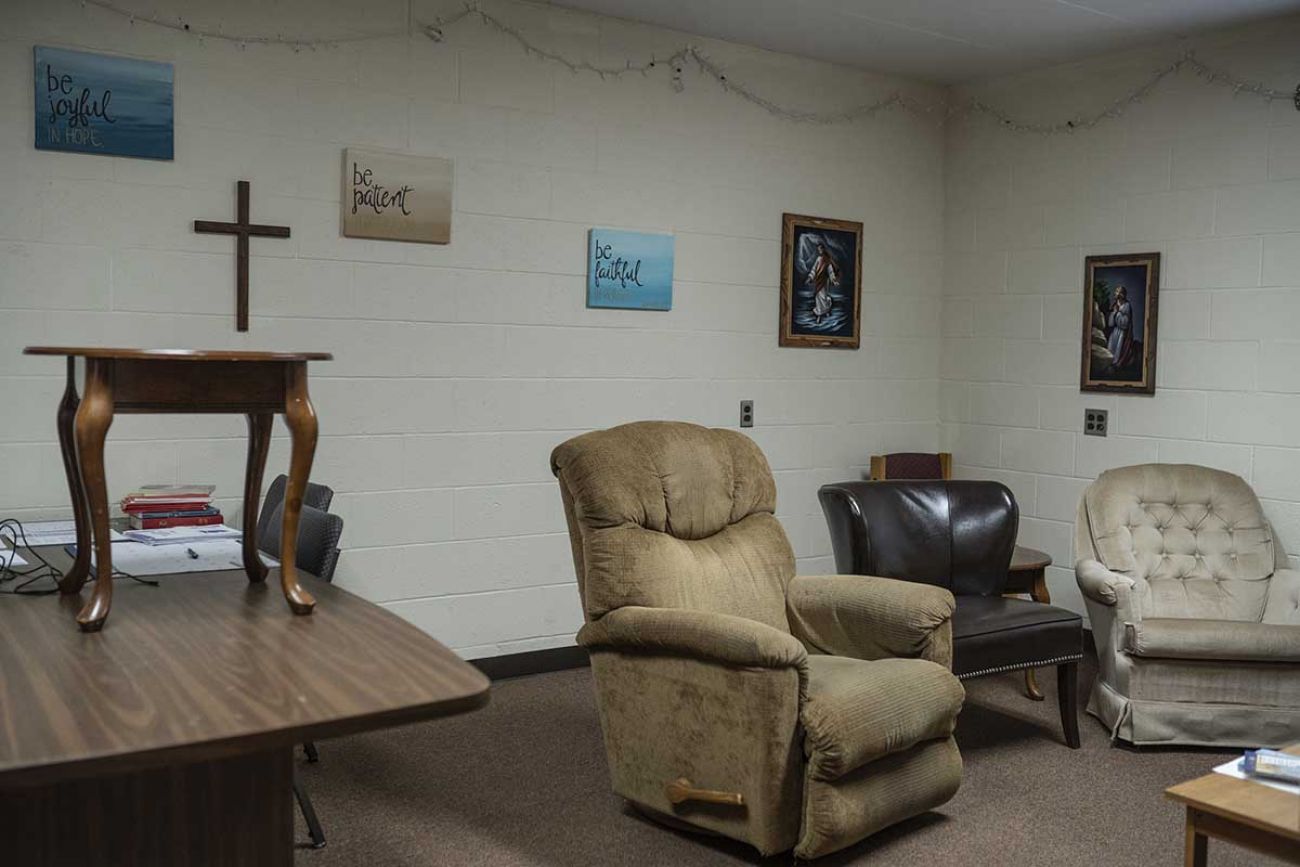
Each family of a child who lives in the school's dorms also received a $1,100 rebate in 2020, for the missed time living in the dorms. Some families donated the funds back, Luetzow said. Much of the PPP funding went to covering staff salaries during the early days of the pandemic, he said.
Funding proposals reviewed by the Detroit Free Press include a range of items, from disinfecting supplies to mental health supports. The proposals, included in early ESSER data from the MDE, are preliminary.
While some schools asked for a laundry list of spending items, many received a fraction of what they requested.
Powers Catholic School in Flint, for example, shows $1.3 million in requested ESSER funds from Flint Community Schools Powers will likely receive a very small fraction of that request, said Kevin Walters, with the office of school support services at the MDE. Under the process of allocating the funds, the Flint school district helps Powers narrow down the proposed spending, which is then approved by MDE.
Other private schools provided more vague explanations on how they used the money.
Holly Fournier, a spokesperson with the Archdiocese of Detroit, an organization that oversees dozens of Catholic schools across metro Detroit, wrote in an email that she could not provide exact spending figures.
However, she said much of the public money went to supporting staff.
"For the majority of our schools, EANS and PPP dollars were used to support additional personnel needs during the height of the pandemic, including school counselors and interventionalists, like reading and math coaches, who work one-on-one and in small groups with students needing extra assistance in various subjects," she wrote.
"Some schools also used these funds to enhance the online learning experience: subscribing to educational apps, covering wifi for low-income families without internet access, and equipping teachers and students with the tools necessary to teach and learn remotely."
Adams, with University of Detroit High, said his school spent much of the ESSER money on technology to assist in remote learning, including equipping classrooms with video cameras, speakers and microphone so students could log into class from home.
Public funds for private schools?
The debate over whether private schools should benefit over taxpayer money is long-running, and began long before the pandemic. Some states have school voucher programs, which allow funding to go to private schools per student, in scholarship form. A ballot initiative in Michigan would create such a program, but the proposal will likely not make the ballot this year. Michigan’s Constitution forbids voucher programs, and an effort on the ballot in 2000 to change that was rejected by voters.
Brian Broderick, executive director of the Michigan Association of Non-public Schools, said the need for extra funding from federal COVID relief funds was clear.
"COVID impacted you no matter where you went to school," he said. "You can't make a distinction between going to a public school or private school."
Others have criticized schools for taking multiple streams of funding.
Heard, with 482Forward, once tried to get her son into a private school, she said. Her son was denied, with little explanation. She would have needed significant financial assistance to send him to the school, which usually costs thousands in tuition every year.
She said the experience taught her that private schools can turn away children for any reason — which is why she opposes any public funds crossing over to private organizations, including PPP loans and federal COVID relief.
"It all boils down to the same thing: Public Money for private schools, and I still say no," Heard said.
How much relief funding should go to private schools was also hotly contested early on in the pandemic.
Michigan, led by Attorney General Dana Nessel, sued former U.S. Education Secretary Betsy DeVos in 2020 over an initiative DeVos spearheaded that would have led to private schools receiving $16 million in federal COVID relief.
Nessel's suit disputed a U.S. Department of Education rule that would have led to more funds going to private schools, with fewer restrictions over which schools were eligible, namely private schools that serve fewer low-income students.
Nessel accused DeVos of trying to "siphon away funds from public schools to private schools."
A federal judge permanently blocked DeVos from implementing the rule, leading to private schools receiving a smaller chunk of change.
Others have criticized private schools for taking PPP loans.
COVID Stimulus Watch, a progressive government watchdog based in Washington, D.C., found in 2020 that 5,400 private schools nationally received $4.5 billion in PPP loans, at about $855,000 per school. In Michigan, 97 private schools received PPP loans, according to the report. U.S. Rep. Bobby Scott, a Democrat from Virginia who chairs the Education and Labor Committee, said the report revealed a “disturbing imbalance” between the relief available to public schools and private schools.
“Congress must focus on putting resources where they are most needed,” Scott said in a news release from 2020.
Accountability
MDE officials have pledged to hold schools, private and public, accountable for spending.
"We will know where the funds are spent," Walters said.
But there are some quirks in accountability measures for the funding.
For example, local school districts, rather than the private schools, will be on the hook to pay back funding if ESSER money is misspent, even though private schools ultimately benefit from the funds.
"It’s appropriate for the monitoring to focus on the local district," DiSessa wrote, because the funding is spent by the public school for the benefit of the private school.
The Michigan Department of Education is monitoring how private schools benefit from EANS funding through its application process. Schools must get approval for their spending proposals from MDE and then present an invoice for reimbursement for the spending.
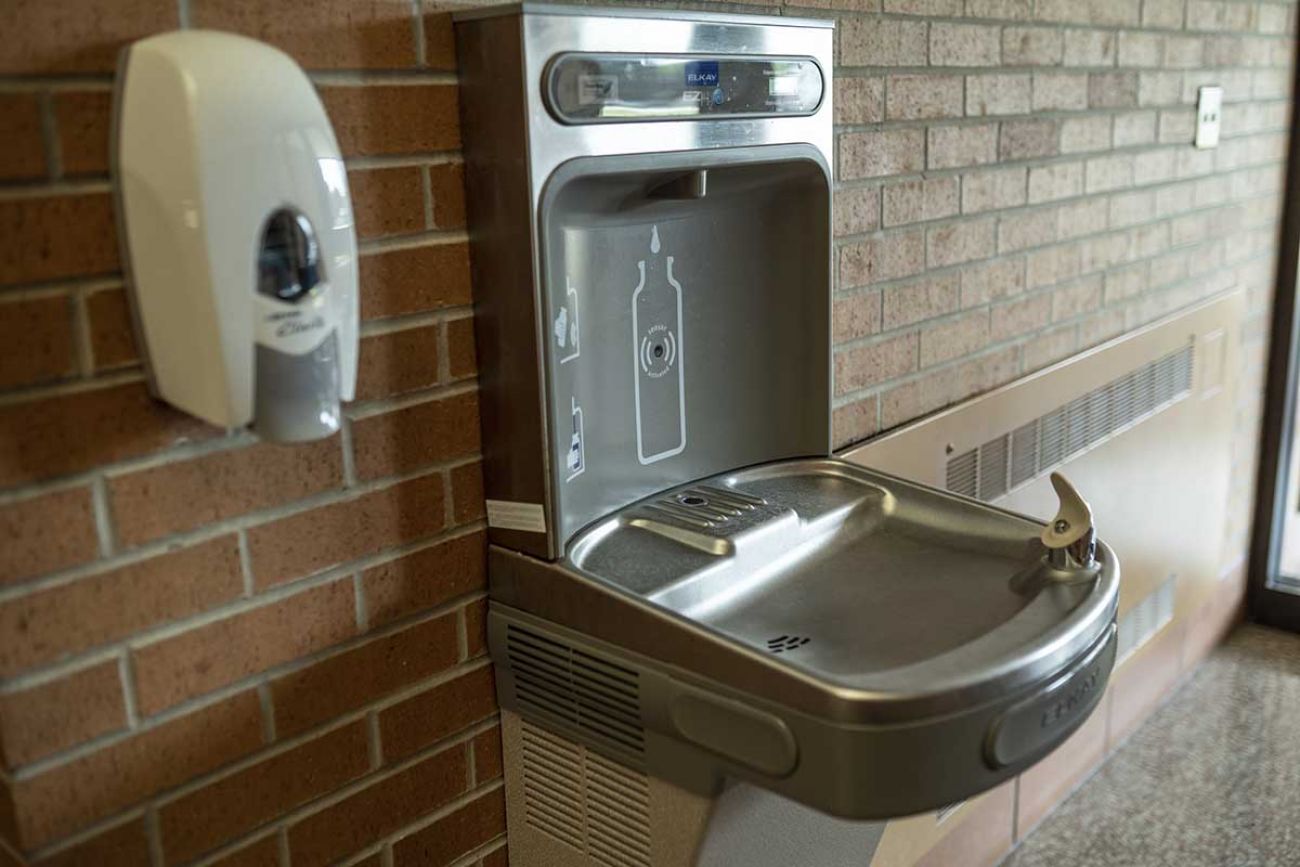
"It all boils down to the same thing: Public Money for private schools, and I still say no," Heard said.
How much relief funding should go to private schools was also hotly contested early on in the pandemic.
Michigan, led by Attorney General Dana Nessel, sued former U.S. Education Secretary Betsy DeVos in 2020 over an initiative DeVos spearheaded that would have led to private schools receiving $16 million in federal COVID relief.
Nessel's suit disputed a U.S. Department of Education rule that would have led to more funds going to private schools, with fewer restrictions over which schools were eligible, namely private schools that serve fewer low-income students.
Nessel accused DeVos of trying to "siphon away funds from public schools to private schools."
A federal judge permanently blocked DeVos from implementing the rule, leading to private schools receiving a smaller chunk of change.
Others have criticized private schools for taking PPP loans.
COVID Stimulus Watch, a progressive government watchdog based in Washington, D.C., found in 2020 that 5,400 private schools nationally received $4.5 billion in PPP loans, at about $855,000 per school. In Michigan, 97 private schools received PPP loans, according to the report. U.S. Rep. Bobby Scott, a Democrat from Virginia who chairs the Education and Labor Committee, said the report revealed a “disturbing imbalance” between the relief available to public schools and private schools.
“Congress must focus on putting resources where they are most needed,” Scott said in a news release from 2020.
About the project
$6 billion. That’s how much Michigan schools are receiving from the federal government to help students and staff recover from the pandemic. But it isn’t entirely clear how this unprecedented amount of federal cash is being spent and whether it is having an impact.
Chalkbeat Detroit, the Detroit Free Press and Bridge Michigan have teamed up to find out where the money is going, who is benefitting and whether the money is helping students get back on track academically, emotionally and socially.
Please share your thoughts — and tips — by emailing laltavena@freepress.com, klevin@chalkbeat.org and ilohman@bridgemi.com
Michigan Education Watch
Michigan Education Watch is made possible by generous financial support from:
Subscribe to Michigan Education Watch
See what new members are saying about why they donated to Bridge Michigan:
- “In order for this information to be accurate and unbiased it must be underwritten by its readers, not by special interests.” - Larry S.
- “Not many other media sources report on the topics Bridge does.” - Susan B.
- “Your journalism is outstanding and rare these days.” - Mark S.
If you want to ensure the future of nonpartisan, nonprofit Michigan journalism, please become a member today. You, too, will be asked why you donated and maybe we'll feature your quote next time!




